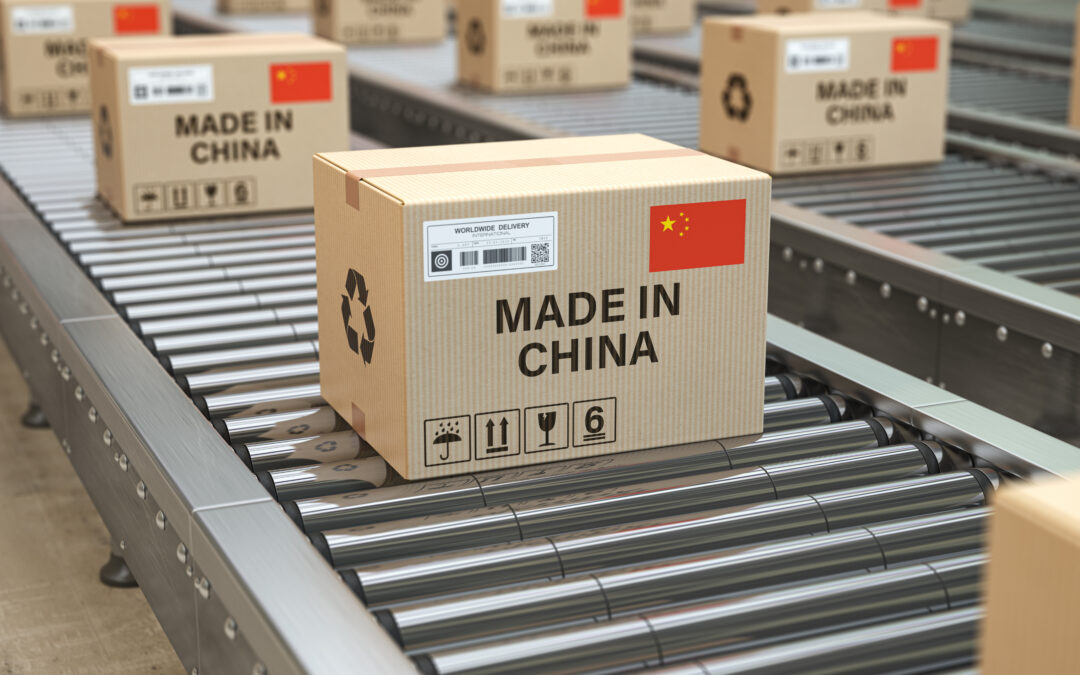It’s the perfect crime … at least as far as China’s concerned…
All they had to do was take advantage of an old loophole in the United Postal Union’s (UPU) rules, and dump an estimated $300 million in yearly shipping costs onto the American taxpayer.
Except now, President Trump has committed to stopping this scam dead in its tracks:
Video Transcript:
Welcome to Moneyball Economics. I’m Andrew Zatlin, and today is another day in Trump’s world, which means another day to release new rules and directives to shake up the status quo…
And in fact, [last] week there seemed to be a rule regarding the United States Postal System that, well, it kind of seemed petty.
Donald Trump ordered that if you’re China and you send something via the postal system and it’s a small package worth less than 800 bucks, we’re not going to take it anymore. Just literally, it’s not going to come into the United States.
Kind of sounds petty, right? Kind of sounds [like a] mean, obscure rule. Well, in fact, it’s anything but petty. It’s very foundational to how Donald Trump wants to rebalance trade with China.
And to understand that we’ve got to take a step back and set the stage by looking at the history of the postal system until 1870, getting a package sent from New York to Berlin. It was hit or miss, okay?
Not only it would go by ship, but there were different systems, different ways you would send something. There was no uniformity and just basic things like how you addressed and got something from point A to point B. It varied depending on where you lived.
So in 1870, all these countries get together and they agree on a uniform set of rules, codes, if you will.
How are things going to get addressed? But there’s another set of rules that get incorporated, and this has to do with payments. For example, if John Smith in New York pays the United States Postal System to send something into London, he’s paying into the US Postal System.
Well, some amount of money has to then be transferred over to London at the same time. If it goes to London, what do we do about say, inbound levies and taxes and things like that?
All these rules get hashed out along the way, and this is where we catch up to what’s going on with China.
Along the way, there’s a carve out. Not every country is financially capable of paying the same fees. Not every country should pay the same amount of fees as the thinking.
If you’re a poor country, it costs less for you locally to send something and just overall, you’re not really doing much in terms of the whole global volume of mail. So basically smaller countries, poor countries are subsidized so that we can send something to them, they can deal with it and they can send something to us.
This system has worked really well since 1870, 150+ years. 191 countries subscribed to it. China found a loophole and they have been driving through it, and it has meant billions, tens of billions of dollars a year going to them, and quite frankly, a different cost-benefit.
And Trump is coming in. He’s going to try to change that cost-benefit.
Let me explain… It’s a very obscure loophole, but China’s definitely taken advantage of it.
Remember, if you’re a developing country, you pay less.
So for example, if you are in Malaysia and you want to send something to the United States, it would cost you $2 at the same time. If you wanted to send it domestically from, say, Miami or some other place, cost you six $7. Okay?
So if you’re in Malaysia trying to sell a T-shirt to someone in the United States, you’re only going to pay $2. And that covers not just cross border, but domestically taking it and putting it in that person’s mailbox versus if they bought it domestically, they would’ve to pay $6 or $7. When you’re talking about a $20 shirt, $6 or $7 is material, it changes the cost-benefit of where you’re going to buy and so forth.
China discovered this.
Why China? Why is the second largest economy looking at this loophole?
Because under the United Postal Union, the UPU rules that govern the postal systems around the world, China is a developing country.
This is something that Donald Trump tried to attack six years ago and was unsuccessful at doing, and he’s now attacking it. Why should China be considered a developing country? Remember, developing country gets economic advantages. They’re hugely subsidized in a lot of meaningful ways.
It costs a lot more to ship something from the US to China than the same good from China to the US because of this. So that becomes an economic block in and of itself. But at the same time, if you are selling small goods and shipping it directly to the consumer, you’ve got a huge advantage.
This is why we have companies like Temu and AliExpress emerging because what they’ve realized is they can send whatever these cheap goods are through the mail and it gets to the end.
There’s no taxes if it’s under $800.
There was a rule in the postal system, it’s called de minimis. If it’s super small, we don’t want to waste our time getting the postal office to have to open it up and confirm the contents are what they are, charge some kind of tax and move it along. If Amazon sells you something, taxes charge.
So you get an advantage both with the shipping rates, avoiding taxes, you name it, and Temu and other companies from China have been taking advantage of this.
The US inbound mail packages, documents, you name it, 4 million a day, most of which comes from China. In other words, 4 million packages a day are coming in from China. They are likely products that could be made here or sourced here, but so it’s a lot of money flowing back to China, and there’s no taxes being paid on it, no levies and so forth.
This is massive, right?
We’re talking about a couple of billion packages going back and forth.
This is ridiculous amounts of money, plus, it’s a burden on the postal system. When you’ve got 4 million packages coming in, you’ve got to have massive amounts of investment in capital equipment to automate this system.
This is why Trump is going after what he’s basically doing is he’s trying to basically get rid of Temu, get rid of all these ways that China has been able to find. That takes a lot of money from US retailers and US factories. Okay? Is it going to work?
Well if you’re China, you’re going to find some other loophole you’ll probably ship via Malaysia or Vietnam, right? Because they’re developing countries, it adds a little bit of burden. It slows down the turnaround time. It adds a little bit of extra cost, but again, you’re dodging us domestic rates and so forth.
It will tilt things though in favor of companies like Amazon, right?
They’ve been losing ground with Timo and all these others who are selling these other cheap goods. You could also buy them through Amazon, but now that you can’t source it directly from China, you’ll be sourcing it more from Amazon.
It also puts an interesting move supporting the amount of deliveries via the US Postal system. You’ll see a lot more money flowing into their hands. That’s good for us as a country. It’ll also possibly beef up some UPS business because they partner well with Amazon, a lot more shipments from Amazon via UPS.
Those are the two plays that I think you should look at. In the meantime, we are in it to win it. Zatlin out.

Andrew Zatlin
Editor, Superforecast Trader & Moneyball Economics





